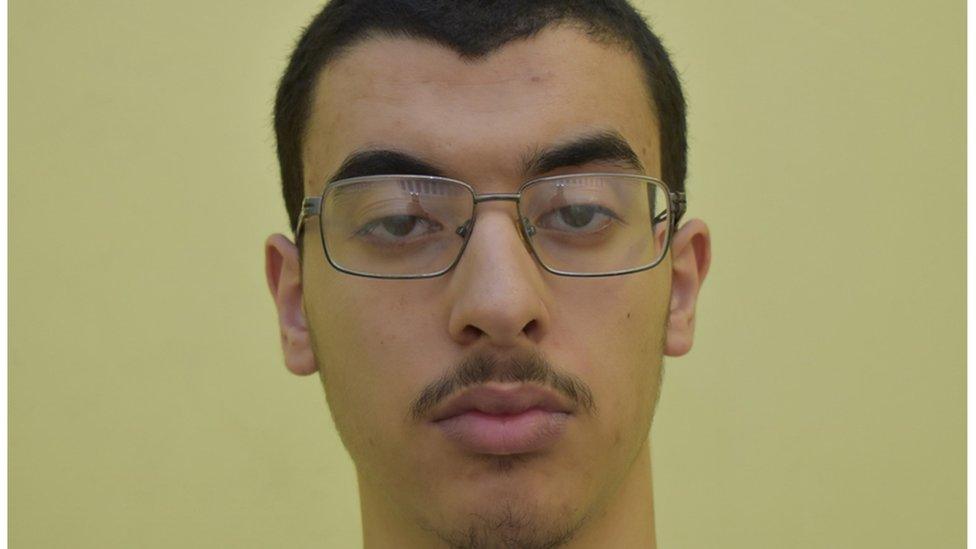Manchester Arena attack: Victim's mum graduates in counter-terrorism
- Published
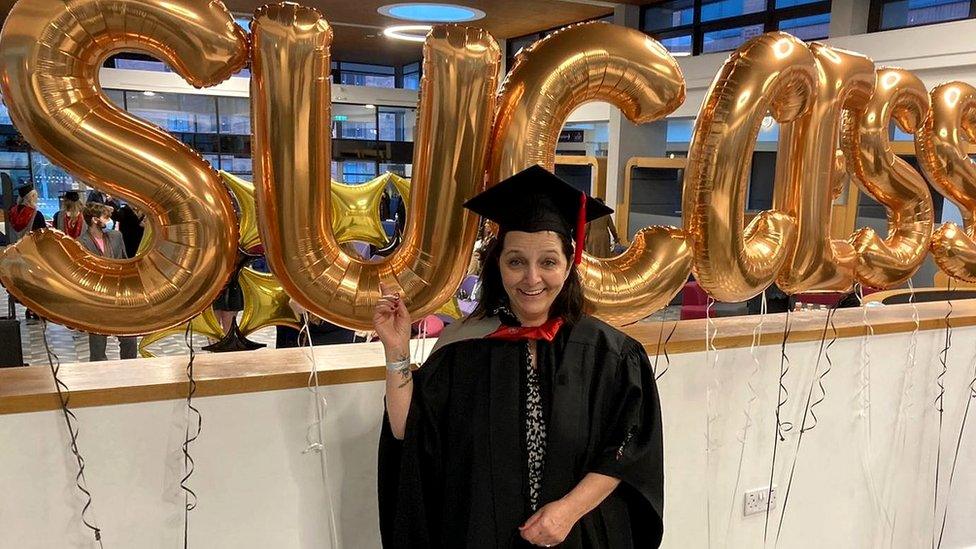
Figen Murray said when her son died in the Manchester attack she knew "absolutely nothing" about terrorism
The mother of one of the victims of the Manchester Arena bombing has graduated from university with a Master's degree in counter-terrorism.
Figen Murray's son, Martyn Hett, 29, was one of 22 people killed in the suicide bombing in 2017.
Ms Murray said she had to balance part of her studies with attending the trial of the brother of her son's killer.
She said: "Martyn would be very proud of me, but I know he would tease me if he saw my cap and gown."
Hashem Abedi, 23, was jailed for a minimum of 55 years in August last year for his part in the terror attack in Manchester on 22 May 2017.
Abedi helped his older sibling Salman to plan the attack at an Ariana Grande concert which, as well as killing 22 men, women and children, including Ms Murray's son, also left hundreds more injured.
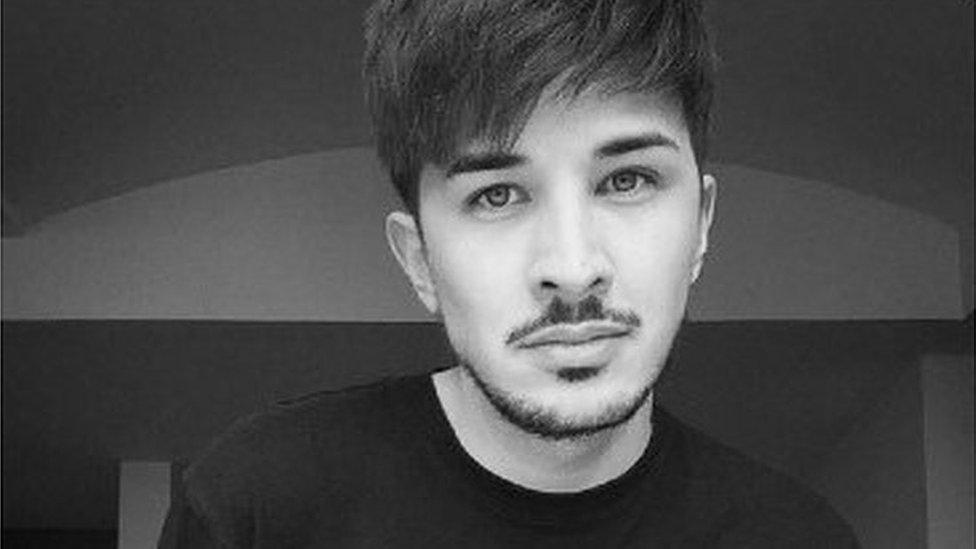
Martyn's mother Figen Murray said he had "the most incredible passion for life"
Since her son's death, Ms Murray has campaigned for legislation known as Martyn's Law, external, which would see security in crowded public spaces and venues stepped-up.
She told the BBC when her son died in the attack she "knew absolutely nothing about terrorism" and that proved to be the motivation for embarking on her two-year course at the University of Central Lancashire (Uclan) in Preston.
"I naively thought it just happens mainly in the States with all the school shootings and abroad in major cities and also in London.
"I had this massive urge to understand terrorism. I had a million-and-one questions about it."
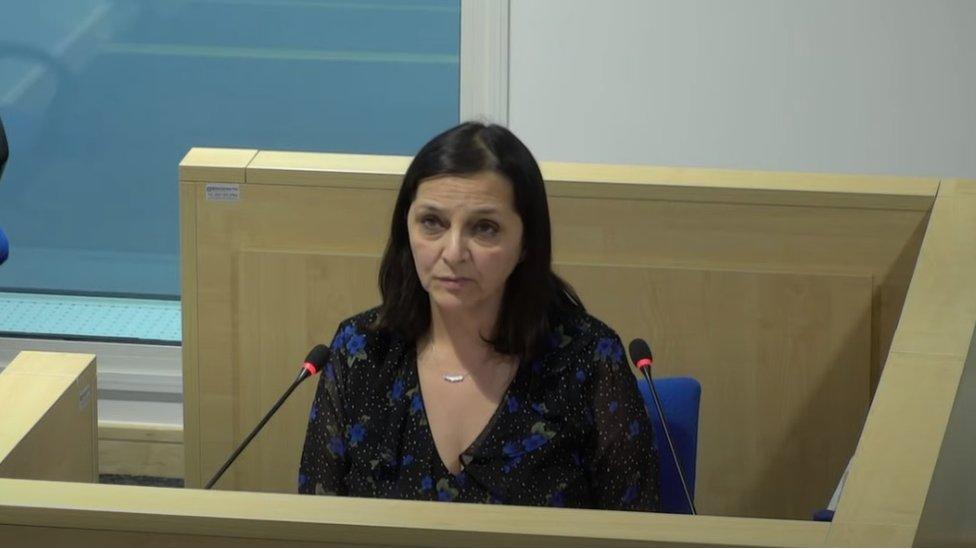
Ms Murray has spent much of her time since her son's death campaigning on counter-terrorism issues
But it was when she was giving a talk to Uclan students about the dangers of online radicalisation that this crystallised into thoughts of a degree course.
"During the break, I spoke to the tutors about all the questions I had in my head," she recalled.
"One of them printed off the syllabus and gave it to me. The tutors told me I could always come on the course.
"When I looked at the syllabus, I could not believe it. I knew the course would provide me with all the answers and much more."
'Two different worlds'
The trial of Hashem Abedi began as Ms Murray was in the midst of her studies at Uclan.
She said: "I would be attending lectures and then getting straight onto the train to London where I would be writing my essays on the journey.
"It was weird going between two different worlds. When there was a break in the hearings, I would find somewhere to continue my writing at the Old Bailey."
Ms Murray said the biggest challenge she found compared to the last time she studied more than 20 years ago was coping with technology.
She said she had dedicated her Master's degree to her son.
Allow X content?
This article contains content provided by X. We ask for your permission before anything is loaded, as they may be using cookies and other technologies. You may want to read X’s cookie policy, external and privacy policy, external before accepting. To view this content choose ‘accept and continue’.

Why not follow BBC North West on Facebook, external, Twitter, external and Instagram, external? You can also send story ideas to northwest.newsonline@bbc.co.uk
Related topics
- Published9 November 2020

- Published20 July 2021

- Published26 February 2021
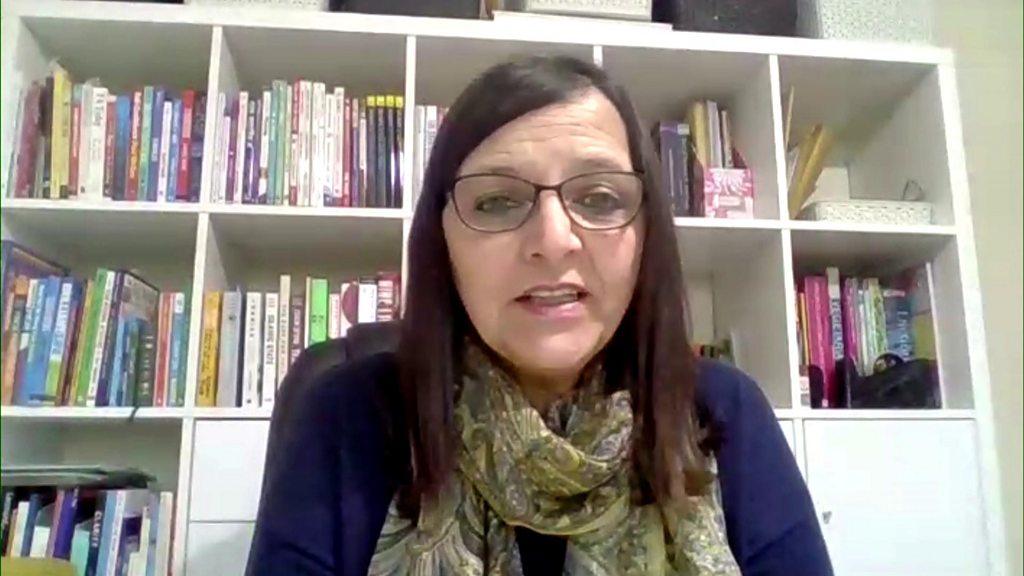
- Published15 September 2020
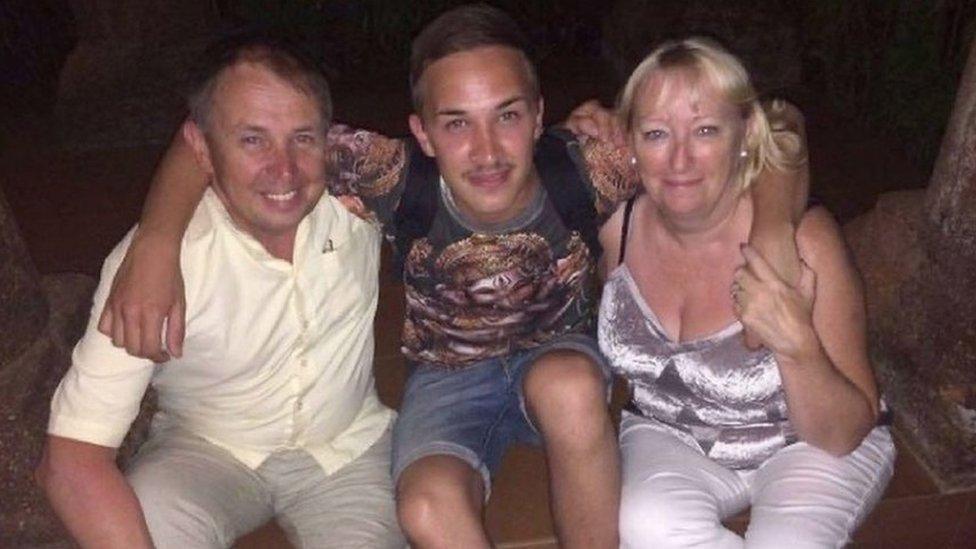
- Published20 August 2020
